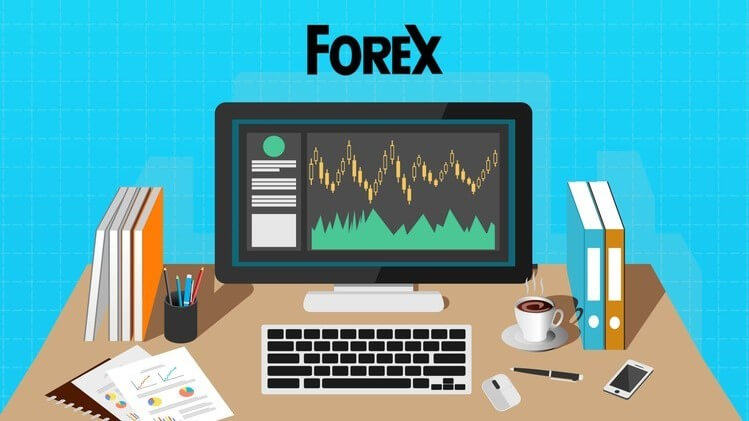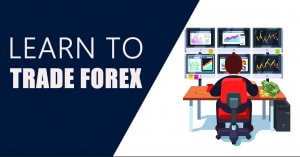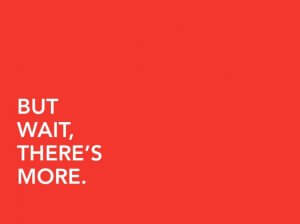Forex trading has a lot of appeal – you get to work from home, set your own hours, and be your own boss. There’s a lot of information on the internet about trading, from the mechanics behind it to trading strategies, tips and tricks, and warnings about what not to do. All of this can certainly be overwhelming for beginners that would like to get involved with trading but don’t know where to start.
One of the first questions you might ask yourself is “what exactly is forex trading?” or “what makes forex trading unique?” Forex is short for “Foreign Exchange” and it revolves around trading currencies against each other. The US dollar is one of the major currency pairs you’ll see traded against other currencies like the British Pound (GBP), Canadian Dollar (CAD), Australian Dollar (AUD), or others. Traders must decide whether the price will go up or down and the goal is to profit from the difference.
One of the main reasons so many people choose to trade forex is because it is very liquid. Liquidity means that there is a lot of price movement that provides traders with many opportunities to buy or sell. People also get involved with forex trading because the market doesn’t close, and they can set their own hours. You get to be your own boss, don’t have to worry about government tax cuts, and you can essentially work from anywhere if you have a laptop, phone, or tablet.
To get started trading, you need to find a broker and open a trading account. The broker gives you access to the market through a trading platform so that you can trade. MT4 is the most common platform and it can be accessed through your web browser, mobile apps, or with a desktop application. Before you open an account with a broker, be sure to do thorough research about the company and read through their terms and conditions. Opening an account that comes with high trading costs and fees can quickly become a costly mistake.
Although the benefits of trading are attractive, there are some cons as well. First, profit is never guaranteed. It is always possible that you will lose your investment. You must have a good education in forex trading before you get started, but many beginners simply don’t understand how much time you will need to put into learning. They open a live account too soon and become overwhelmed. Figuring out when to make trades can also get complicated. There’s a lot that goes into those decisions, including fundamental analysis, which involves making decisions based on the news, and technical analysis, which is based on data and charts that can be analyzed. Then you should consider a trading strategy, risk-management precautions to minimize your losses, and so on.
Making an initial investment is another factor that turns many hopeful beginners away. Many of us don’t have thousands of dollars sitting in the bank, and if we do, the thought of investing that money with the potential to lose it all can be sickening. There is a compromise here in that many brokers will allow you to open an account with somewhere between $5 and $100, so you aren’t risking your life savings. However, the downside to making a smaller investment is that you will never make the same amount of profits as someone that has invested around $30,000 or more. Investing $5 will not be enough to keep you afloat and it certainly wouldn’t be able to support someone that preferred to quit their job in favor of becoming a forex trader. Of course, you could always start small to see if you’re good at it and then make larger investments later.
If you’re looking to start forex trading, you’re off to a good start – reading articles like this one and doing research online is the first step. Things can go into much more detail than our introduction, however, so be sure to keep doing research online to find out more. Start with forex beginner information and later move on to more complicated categories like strategies and psychology. Hopefully, our article has helped to outline what forex trading is and to help one decide if trading is something they would be interested in.





